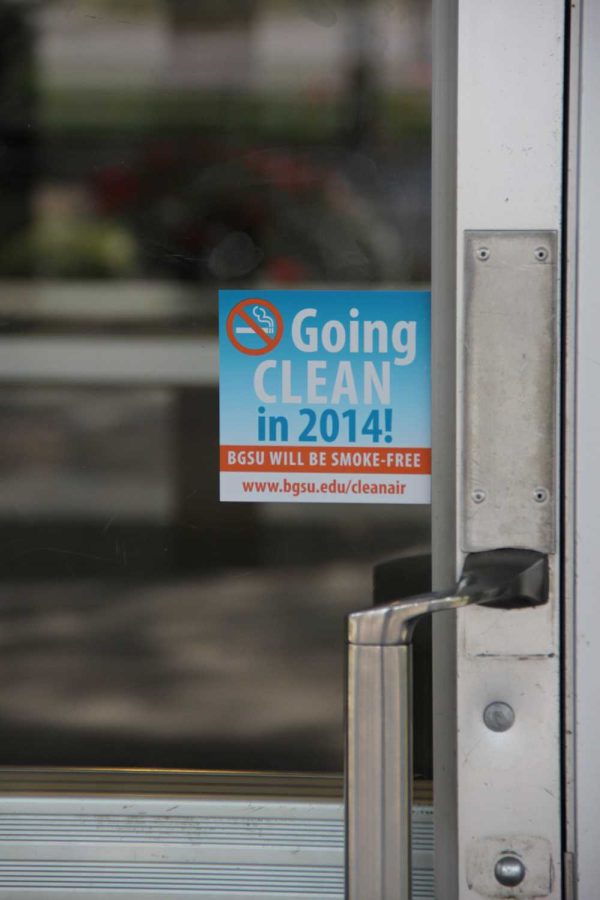Kelsey Vandenberg smoked outside of the Union on Tuesday, but after break, she’ll have to snuff out her cigarette if she’s in the same spot.
The Clean Air Policy will go into effect Jan. 1 and smokers will have to be in a designated smoking area to light up. The closest receptacle to the Union is across Thurstin Avenue.
“I just think it is unnecessary,” Vandenberg said of the policy. “It’s making a problem out of something that doesn’t have to be a problem.”
The policy was approved by the Board of Trustees in June and goes into effect Jan. 1, 2014. The policy states that students, faculty, staff and visitors must go to designated areas, usually in parking lots, to smoke.
“The majority of our community members said they wanted this,” said Jill Carr, vice president of Student Affairs. “It’s all about health-related issues.”
This semester has been about educating the campus community about the new policy. The University put stickers on sidewalks around campus, made a website about the policy and sent out emails to let students, faculty and staff know about the policy, said Michael Ginsburg, associate dean of students.
Freshman Heather Brown said she hadn’t heard about the policy but is glad it’s happening.
“I would love it if they just banned it in general,” she said.
Brown doesn’t smoke herself and said it hasn’t been a big problem at the University but it does bother her when she’s walking around campus.
The University has gotten a lot of feedback from people who are happy about the policy, Ginsburg said.
Smokers will no longer be able to walk around when smoking; the designated areas will include a stash-in-ash and a sign with links to a website telling people of the policy and about options at the University for getting help to quit, Ginsburg said. People can also smoke in their cars.
Vanderberg said she’s never been asked to move or stop smoking but said she would if someone asks her to.
“I think [the ban] is a positive move because it protects those from being exposed to secondhand smoke who don’t want to be exposed to secondhand smoke,” Ginsburg said.
Junior Joe Daugherty was smoking with Vandenberg and said he thinks “smokers should be considerate of people who don’t want smoke blown in their face.”
He said it’s understandable that people don’t want smoke near them, but it’s “just sad it has to be a ban.”
As for enforcement, Carr said it’s supposed to be a community effort.
“It’s going to take a little bit of time for people to be comfortable with that,” she said. “I hope people would be comfortable saying, ‘Hey, we have a new smoking policy.’”
Faculty and staff will have to be role models for students when enforcing the policy, Carr said.
If someone doesn’t go to a designated area when asked, they may be reported to human resources if they are faculty or staff and to the dean of students if they are students.
“If people are obstinate and don’t want to be part of the greater community, more action would have to be taken,” Carr said.
Though the policy isn’t meant to deter people from smoking in general or make them quit, sophomore Madison Dinardo said “it definitely feels like they’re trying to push us to stop smoking.”
“It’s definitely a personal decision,” she said. “One, it’s not their business, and two, if they say they’re pushing health they should have more healthy options … You can’t smoke, but you can drink this coke.”
While there is no exact plan to make the University healthier, Carr said she personally thinks the next step would be to increase the amount of fitness options on campus.
The University will review the smoking policy after it has been in effect for a year, Carr said. Right now, there is more information about the policy, about quitting and a map of the designated areas on the University website.














